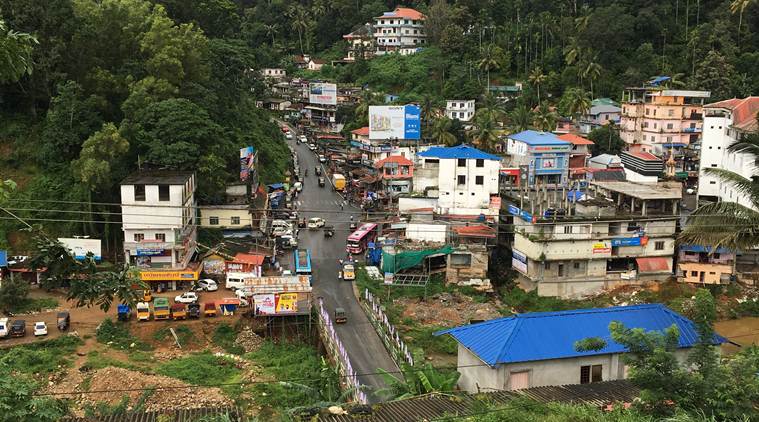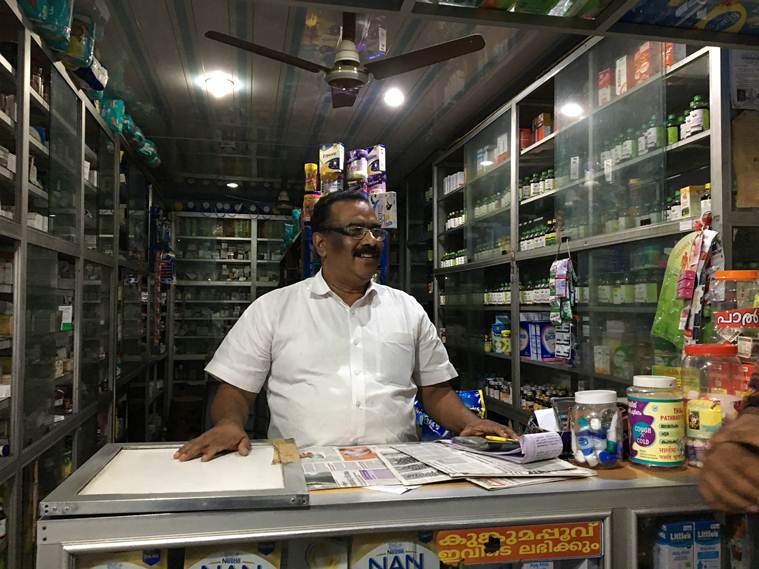
Over 2,700 km south of Parliament House, buried in the shadow of a towering concrete dam deep inside the Western Ghats, it took more than a day for Kashmir to reach Cheruthoni.
And here, at Ground Zero of the Kerala floods, where 19 people lost their lives to the deluge — the most from a single panchayat in the state that saw over 480 deaths in one month — it’s deja vu of a different kind.
Last year this week, this remote pit stop in the mountains of Idukki district was the national headline. Today this week, news from the north has sunk in, and the conversation is all about Kashmir.
It’s complicated, they admit. But then, with homes and hearts still struggling to recover from that August, and rain alerts flashing on TV screens once again, there is no space or time for nuance: Kashmir is either benefit or betrayal.
“You should see this from a national perspective,” says M K Anujan, a 63-year-old “socialist” who has “seen it all” and spends most of his day inside his damp, one-table office drafting petitions for litigants at the district court. For him, news still means the printed word, and he is staring at a banner headline in Malayalam that screams: “Kashmir has become two.”
“J&K is an integral part of India, and it’s time it actually became an integral part of India. There was a feeling before that it was not a part of our country even though it’s a geographical reality. Yes, there was a time when special status was needed, but no longer. Now, Kashmir needs to grow, develop, and once that happens, things will change, terrorism will slowly come to an end. Finally, there will be an end to this endless conflict,” he says.

Down the road, behind his bakery counter opposite the scarred mountainside, BPS Ibrahim is not so sure.
“How is it good for anyone, if such decisions are taken without taking people into confidence, without any consultation? Yes, Kashmir should be an integral part of India, just like any other state, but is this way to do it? But then, who is there to ask these questions on our behalf? There is no political opposition. In Parliament, there is only the government,” he says.
Ibrahim says he “lost everything” in the floods because his store “was” located next to the bus stand. “Was… not now”, he says with a sad smile, because that bus stand doesn’t exist any longer, it was swept away.
On August 9 last year, the reservoir’s water level at 2,399 feet, just about five feet below maximum, the shutter of the 138m-high Cheruthoni dam was opened for the first time in 26 years. Over the week that followed, what was once a pleasant stream turned into a raging torrent, triggering a series of landslides that left in its wake, as one resident described it, “a nuclear wasteland”.
Located 5 km from Idukki’s headquarters, Cheruthoni stands at a corner of Vazhathope, a panchayat that is surrounded by dark green mountains and home to state government employees, farmers and small traders.
Here, the day revolves around two long rows of small, colourful shops winding downhill, leading to a cramped junction — and a bridge over “the water from the dam”. At night, the thick silence of the forests takes over, broken only by the hard monsoon patter on tinned roofs and tarred roads.
Up above Ibrahim’s store near the junction is St John’s Medicals, where owner Jose Pulinkandathil is cautious on Kashmir — at first. Jose heads the local unit of the state merchants association and wants to talk about the floods, instead. He is quick to point out that he was lucky because the water “stopped across the road”. “Wherever it may be, Kashmir or Cheruthoni, the suffering of people has to end,” he says.
But once his lone customer steps away, Jose opens up. “First, you gave special protection to the local community after agreeing that it was needed to make the state an integral part of the country. Now, one fine morning, you pass a law without consulting anyone. To me, that’s betrayal,” he says.
In the middle of at all, at the centre of a town turned upside down by the floods, is a small book store with a bright red board, the only one in Cheruthoni. Inside its narrow walls, Rahul Padmanabhan, a 19-year-old ITI student, is scouting for a primer to help him pass a government test — “any job is fine”, he says. On Kashmir, his answer is a question: “Will this help Kashmir, will this help India… Can anyone say for sure?”